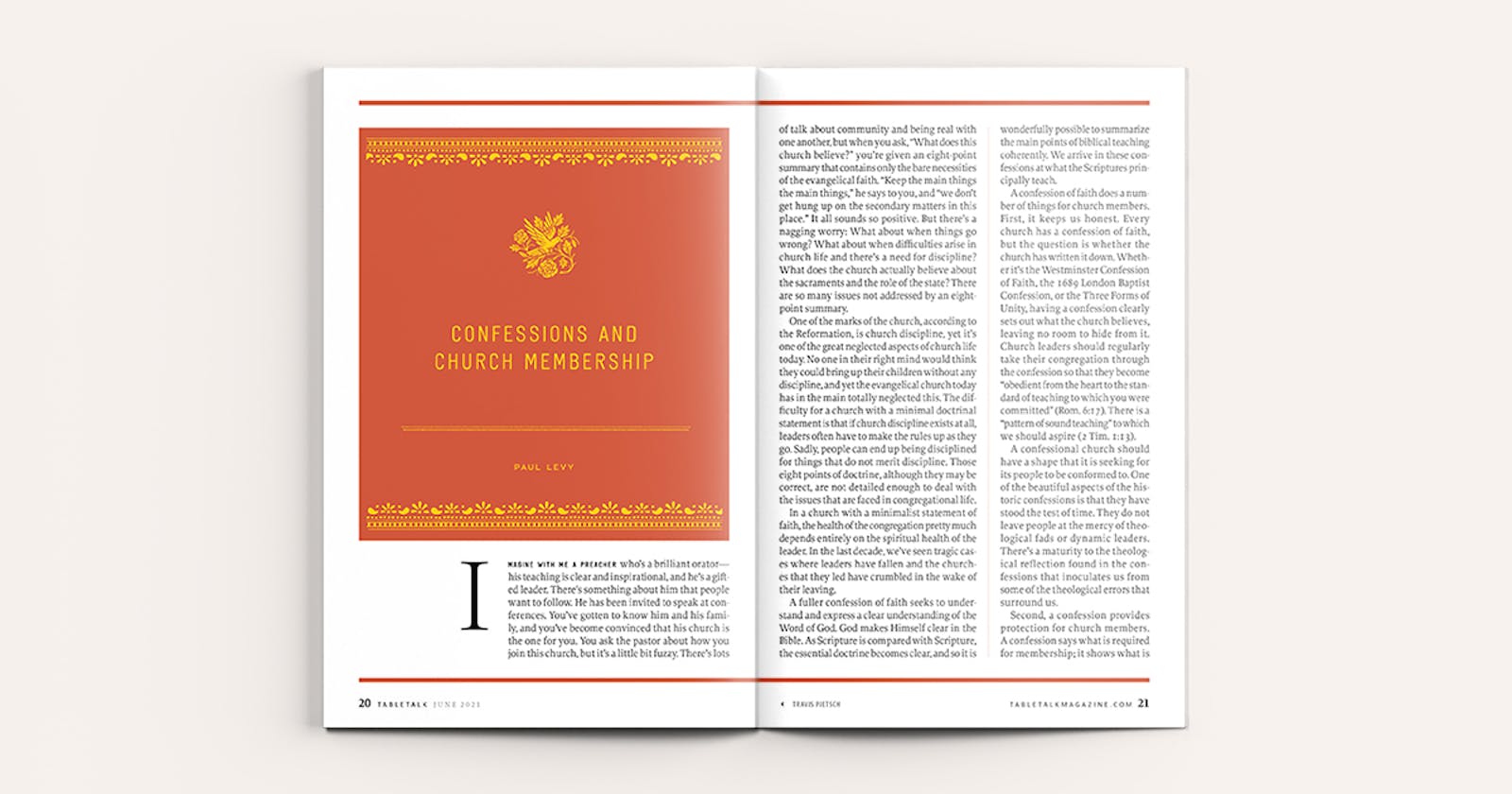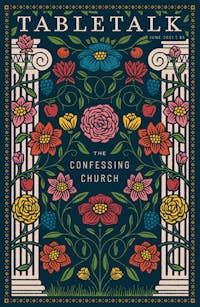
Request your free, three-month trial to Tabletalk magazine. You’ll receive the print issue monthly and gain immediate digital access to decades of archives. This trial is risk-free. No credit card required.
Try Tabletalk NowAlready receive Tabletalk magazine every month?
Verify your email address to gain unlimited access.
Imagine with me a preacher who’s a brilliant orator—his teaching is clear and inspirational, and he’s a gifted leader. There’s something about him that people want to follow. He has been invited to speak at conferences. You’ve gotten to know him and his family, and you’ve become convinced that his church is the one for you. You ask the pastor about how you join this church, but it’s a little bit fuzzy. There’s lots of talk about community and being real with one another, but when you ask, “What does this church believe?” you’re given an eight-point summary that contains only the bare necessities of the evangelical faith. “Keep the main things the main things,” he says to you, and “we don’t get hung up on the secondary matters in this place.” It all sounds so positive. But there’s a nagging worry: What about when things go wrong? What about when difficulties arise in church life and there’s a need for discipline? What does the church actually believe about the sacraments and the role of the state? There are so many issues not addressed by an eight-point summary.
One of the marks of the church, according to the Reformation, is church discipline, yet it’s one of the great neglected aspects of church life today. No one in their right mind would think they could bring up their children without any discipline, and yet the evangelical church today has in the main totally neglected this. The difficulty for a church with a minimal doctrinal statement is that if church discipline exists at all, leaders often have to make the rules up as they go. Sadly, people can end up being disciplined for things that do not merit discipline. Those eight points of doctrine, although they may be correct, are not detailed enough to deal with the issues that are faced in congregational life.
In a church with a minimalist statement of faith, the health of the congregation pretty much depends entirely on the spiritual health of the leader. In the last decade, we’ve seen tragic cases where leaders have fallen and the churches that they led have crumbled in the wake of their leaving.
A fuller confession of faith seeks to understand and express a clear understanding of the Word of God. God makes Himself clear in the Bible. As Scripture is compared with Scripture, the essential doctrine becomes clear, and so it is wonderfully possible to summarize the main points of biblical teaching coherently. We arrive in these confessions at what the Scriptures principally teach.
A confession of faith does a number of things for church members. First, it keeps us honest. Every church has a confession of faith, but the question is whether the church has written it down. Whether it’s the Westminster Confession of Faith, the 1689 London Baptist Confession, or the Three Forms of Unity, having a confession clearly sets out what the church believes, leaving no room to hide from it. Church leaders should regularly take their congregation through the confession so that they become “obedient from the heart to the standard of teaching to which you were committed” (Rom. 6:17). There is a “pattern of sound teaching” to which we should aspire (2 Tim. 1:13).

A confessional church should have a shape that it is seeking for its people to be conformed to. One of the beautiful aspects of the historic confessions is that they have stood the test of time. They do not leave people at the mercy of theological fads or dynamic leaders. There’s a maturity to the theological reflection found in the confessions that inoculates us from some of the theological errors that surround us.
Second, a confession provides protection for church members. A confession says what is required for membership; it shows what is and what isn’t a case for discipline; it gives criteria by which to hold elders accountable; it provides boundary markers for theological reflection. The confession becomes a method of expressing pastoral care. It shows us the path of theological maturity and so enables pastors and elders to shepherd and encourage members along that path of discipleship but also allows for rebuke and exhortation when those members go astray.
Third, holding a confession allows us to have meaningful unity with like-minded churches all over the world and down through history. Although the Reformed confessions might vary in the way they express themselves, the major doctrines of grace professed in them are the same.
Fourth, a confession of faith gives members tools to live in, think about, and critique a culture that is becoming increasingly hostile to the gospel. The questions that we are being asked today demand fuller, deeper theological reflection. As we go to these Reformed confessions that summarize the teaching of Scripture, we will find ourselves being equipped more and more to give a reason for the hope that is within us.
